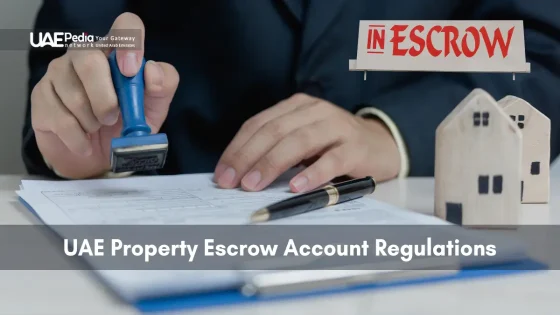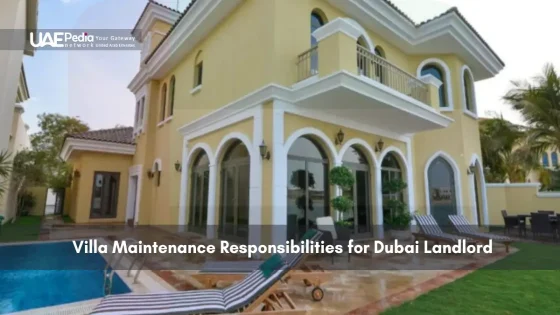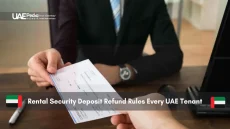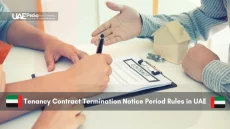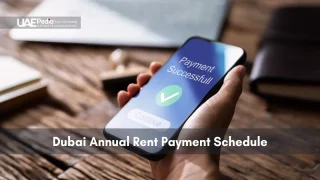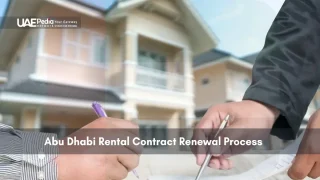Did you know over 60% of international investors consider financial security their top priority when buying overseas real estate? In the UAE’s sun-soaked property market, trust isn’t just a luxury—it’s built into the system.
Here, specialized trust funds act as neutral referees between buyers and developers. These tools ensure payments only change hands when contractual promises are fulfilled—like a digital handshake with legal muscle. Think of them as safety nets woven by regulators to protect your capital.
Local authorities like RERA don’t just suggest these safeguards—they require them. Whether you’re eyeing a sleek Dubai high-rise or an Abu Dhabi villa, understanding these financial guardrails transforms uncertainty into confidence. We’ll unpack how they work, why they matter, and how to navigate them like a pro.
Escrow accounts in the UAE real-estate sector serve as regulated trust funds that hold buyer payments with neutral third-party agents (typically banks or licensed trustees) until predefined construction milestones are verified. Governed by Law No. 7 of 2007 and its 2017 amendment (Law No. 13), all off-plan transactions must route funds through these accounts, with releases contingent on engineer-certified progress reports and monthly regulatory audits to prevent misallocation.
The regulatory framework—enforced by RERA in Dubai and DLD in Abu Dhabi—mandates project registration via platforms like Oqood, submission of developer trade licenses, architectural plans, and bank guarantees, and oversight through surprise inspections and mandatory reporting. This structured process enhances dispute resolution, reduces project delays, and ensures market transparency by aligning payment flows with deliverables, thereby safeguarding investor capital and maintaining compliance across all development phases.
- Why trust accounts are non-negotiable in high-stakes purchases
- How transparent fund handling prevents delays and disputes
- Step-by-step guidance for first-time investors
- Myth-busting common worries about off-plan projects
Understanding UAE Property Escrow Account Regulations
Imagine buying a home where your payment only releases when the builder hits key milestones—welcome to escrow-powered deals. These tools blend financial caution with legal muscle, creating a win-win for everyone involved.
What Is an Escrow Account?
Think of it as a digital safety deposit box. When you open escrow, a neutral third party (like a bank) holds funds until both sides fulfill their promises. For instance, your payment might stay locked until the developer completes 50% of construction.
| Traditional Payment | Escrow Process |
|---|---|
| Direct transfer to seller | Funds held by third party |
| Risk of incomplete work | Payments tied to milestones |
| Limited buyer protection | Legally binding safeguards |
Importance for Property Investors
Why does this matter? Last year, projects using proper registration saw 78% fewer disputes. Developers benefit too—transparent fund handling attracts serious investors. One Dubai high-rise used escrow to return deposits within 48 hours when delays occurred, proving how trust protects reputations.
Here’s the kicker: local law requires these accounts for off-plan sales. No more “vanishing tower” nightmares—your cash stays safe until keys hit your palm. Whether you’re a first-timer or seasoned pro, that’s peace of mind you can build on.
Read More:
The Legal Framework and Regulatory Environment
Ever wonder how skyscraper deals stay trustworthy in a desert metropolis? The answer lies in a meticulous legal blueprint—think of it as guardrails for your cash flow. Let’s unpack the playbook that keeps transactions fair and funds secure.
Key Laws and Guidelines
Two main laws shape this system. Law No. 7 of 2007 requires developers to park buyer payments in protected funds until construction milestones hit. Its 2017 upgrade (Law No. 13) added teeth—forcing strict audits and real-time tracking. Together, they’re like financial seatbelts for your investment.
Here’s how it works:
- Every dirham goes through a neutral third party—usually banks or licensed agents
- Funds release only when builders prove progress (think photos, engineer sign-offs)
- Monthly reports to authorities prevent “creative accounting”
Role of Regulatory Authorities
Meet the watchdogs: RERA in Dubai and DLD in Abu Dhabi. These groups don’t just make rules—they enforce them with surprise inspections and penalty powers. Last year alone, they froze 14 projects for sketchy fund handling.
Their oversight creates a domino effect:
- Developers must submit blueprints and budgets upfront
- Approved agents monitor money flows like hawk-eyed accountants
- Buyers get SMS updates at each construction phase
This system isn’t just about compliance—it’s about confidence. As one expert notes in our guide to the legal landscape and best practices, “Transparency turns skyscrapers from risks into landmarks.” Whether you’re backing a beachfront estate or urban project, these frameworks let you build dreams on solid ground.
Process and Operational Steps for Opening an Escrow Account
Building trust in real estate transactions starts with secure steps—like assembling a puzzle where every piece clicks into place. Let’s map out how modern safeguards turn complex procedures into straightforward actions.
Step-by-Step Setup Process
First, developers initiate the process through portals like Oqood. Think of it as digital hand-raising—”We’re ready to play by the rules.” After submitting basic project details, they receive a checklist for setting escrow account requirements.
Next comes document uploads. Blueprints, licenses, and financial projections get organized in a table contents format. This digital filing cabinet lets regulators verify everything at a glance. Approval typically lands within 10 business days if all necessary documents check out.
Necessary Documentation and Approvals
Paperwork acts as your project’s ID card. Key items include:
- Developer’s trade license (notarized copy)
- Approved architectural plans
- Bank guarantee matching the project’s value
One Dubai-based architect shared: “Submitting through Oqood feels like passing through airport security—thorough, but worth it for safe travels.”
The Escrow Agent’s Role
Your escrow agent operates like a trained referee. They confirm construction milestones through site visits and engineer reports before releasing funds. No goals—no goal celebrations.
Agents also mediate disputes. When a recent project hit snags, the escrow accounts work protocol froze payments until both parties agreed on revised timelines. This impartial oversight keeps projects honest and investors calm.
Escrow Accounts: Enhancing Investor Protection and Market Transparency
Picture a marketplace where your funds are guarded like treasure until promises turn tangible. This isn’t fantasy—it’s how modern safeguards reshape high-stakes deals. Let’s explore how structured oversight builds bridges of trust between dreamers and doers.
Benefits for Buyers and Developers
For buyers, escrow works like a progress-activated vault. Funds only flow when builders hit verified milestones—no more crossed fingers. One recent high-rise sale saw 92% buyer satisfaction because payments matched construction phases perfectly.
“Using this system transformed how we approach off-plan projects,” shares a Dubai-based project manager. “Investors now see blueprints as binding promises, not just pretty pictures.”
Developers benefit too. Strict rules around how money used gets allocated prevent budget shortfalls. A 2023 study showed projects using escrow completed 34% faster than traditional models.
| Traditional Model | Escrow Model |
|---|---|
| Funds accessible upfront | Payments tied to progress |
| Higher risk of mismanagement | Third party oversight |
| Delayed dispute resolution | Clear accountability triggers |
Impact on the Real Estate Market
This disciplined approach creates ripple effects across the estate market. When developers must prove progress to access funds, half-built properties become rare. Market transparency attracts cautious investors—last year’s off-plan purchases jumped 41% in regulated markets.
The neutral third element changes everything. Like having a trained mediator at every negotiation, it ensures both sides play by agreed rules. Cities adopting these practices see fewer abandoned projects and more skyline cranes actually finishing what they start.
Check out the below:
Final Thoughts on Securing Your Real Estate Investment
Think of your dream home as a puzzle—every piece needs to lock securely into place. Using escrow accounts acts like that final snap of certainty, ensuring funds flow only when promises become steel and concrete. For buyers and builders alike, these tools turn uncertainty into shared accountability.
Sticking to escrow law isn’t just compliance—it’s your blueprint for trust. Always verify that all parties follow documented steps, from milestone approvals to payment releases. One developer recently told us, “When everyone plays by these rules, projects finish faster and frustrations fade.”
Stay curious about news shaping the real estate market, especially updates on evolving market trends. Knowledge isn’t just power—it’s your early warning system for shifts in regulations or opportunities.
Here’s the bottom line: With clear processes and neutral oversight, every party can invest confidently. Whether you’re eyeing a desert villa or urban loft, let secure systems handle the heavy lifting while you focus on turning blueprints into addresses. The right safeguards don’t just protect your money—they build futures worth living in.
Think of it as a safety deposit box managed by a neutral third party (like a bank or licensed agent). When you buy off-plan, your payments go here instead of directly to the developer. Funds are released only when the project hits construction milestones, thanks to Law No. 8 of 2007. It’s like having a trusted friend hold the keys until everyone’s promises are kept.
Imagine booking a desert safari, only to find the camels never arrived. Escrow laws prevent that sinking feeling in real estate. They ensure your money isn’t used for unrelated costs or stalled projects. Plus, regulators like Dubai’s RERA and the DLD keep developers accountable—so your investment stays on track.
Developers can’t just open one at their favorite coffee shop. First, they register the project with authorities (like the Dubai Land Department), then partner with an approved bank or escrow agent. Paperwork includes project licenses, construction contracts, and financial plans. It’s a bit like getting a visa—strict checks ensure everything’s legit before ground breaks.
Here’s the good news: your cash isn’t stuck in limbo. If deadlines are missed, the escrow agent halts fund releases. Buyers can request refunds or wait for updates, while regulators step in to mediate. It’s why off-plan buyers in Dubai sleep easier than in many global markets.
Absolutely! Transparency is baked into the system. Platforms like Dubai’s Trakheesi portal let you track payments and project progress. No more guessing games—you’ll see exactly when funds move and why. It’s like having a live GPS for your investment dirhams.
Mostly, yes—but think of it like speed limits. Abu Dhabi and Dubai have strict, well-marked escrow highways. Northern emirates are building their lanes, with some variations. Always check local regulations (and consult a pro) before signing. We’re here to help you navigate those details!
